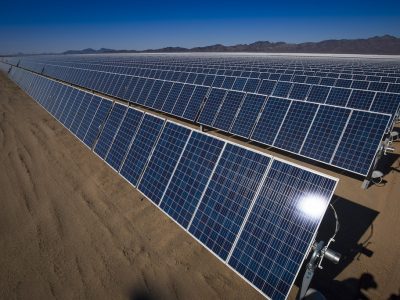Dear 1L . . . .
Welcome to law school. You’re just in time to help save the world.
Dear 1L:
You’ve gotten to law school at a crucial time for the future of the planet. The good news is that you’re arriving at a pivotal point when your work as a lawyer can make a big difference. The bad news is that we have a limited amount of time to get the situation under control. You’ll need to plunge right into the issues as a lawyer if you’re going to contribute.
At the end of environmental law courses, I used to tell students about the role they could play over the course of their careers in fixing environmental problems. I’m going to have to change my spiel a little bit. It’s too late to prevent a serious amount of climate change. Avoiding a climate disaster isn’t something today’s students can plan on tackling “over the course of their careers.” The critical time will be the next fifteen years, which means you’ll need to get to work pretty quickly.
Why fifteen years? By then, major economies need to clean up their electric power systems and electrify their transportation systems. There will certainly be continuing challenges, but if we don’t get where we need to be in 2035, we’ll be desperately playing catch-up after that. So, as I said, the next fifteen years are crucial.
Fortunately, we’ve begun to lay the foundation for the 2035 goal. Most states have renewable energy standards, and the use of renewables is growing almost everywhere. The costs of wind, solar, and storage have plunged faster than anyone expected. Many state governments have already set aggressive emissions goals, and some have now set in place detailed plans. Major corporations have been setting carbon targets and demanding to be connected to renewable power generation. The finance sector is starting to take climate risk seriously.
We’ve made real progress but we’re way behind the curve. In the next 15 years, we need to build frantically on this foundation to turn incremental progress into transformative change.
The most obvious way to contribute is as an environmental or energy lawyer. But there’s a lot more that needs to be done beyond those areas. There will be changes in land use laws to limit sprawl and support public transit. There will be changes in building codes to require electrification and energy efficiency. There will be corporate planning to cut emissions, and climate-related disclosure requirements. Obviously, there will also be a lot to do in the international sphere. Small businesses are going to be in special need of help to work their way through regulatory requirements. Someone is going to have to represent disadvantaged communities to make sure that they aren’t left behind or overburdened.
Those of us who have been around longer aren’t going to be able to just pass the baton to you. There isn’t enough time for you to take on the problem alone. We’re going to have to work ever harder to make change happen.
What we do together between now and 2035 will determine what your lives look like in 2050 and 2060, and what your children and grandchildren will see in the next century. So grab your books, get yourselves ready, and be prepared to head for the trenches when you graduate.
Reader Comments
6 Replies to “Dear 1L . . . .”
Comments are closed.







Great piece Dan. I might add that it is not just law students who can contribute to addressing climate change. Mid and late-career lawyers in other fields can and should do as much as they can on climate issues. I wrote this piece in ABA Journal explaining how lawyers of different experience levels can get involved. https://www.abajournal.com/voice/article/7-ways-lawyers-can-join-the-fight-to-curb-climate-change
Thanks, Matthew. You make an excellent point about the opportunities for lawyers at all career stages.
Thank you Prof. Farber, saving the environment so our newest and all future generations shall have an acceptable quality of life is the highest priority for the human race today.
But, we also have other major crises that we must immediately overcome to save our Democracy, including the threat of violence reported today:
21 million Americans say Biden is ‘illegitimate’ and Trump should be restored by violence, survey finds
https://theconversation.com/21-million-americans-say-biden-is-illegitimate-and-trump-should-be-restored-by-violence-survey-finds-168359
Prof. Farber, I wish you and your academic colleagues the best in providing leadership for meeting the current challenges of change that can destroy our civlization, especially since current events are proving that time is running out faster than ever before in history considering the magnitude of the challenges we face today.
Hi Anthony — I certainly share your concern about the threats to the vitality of our system of democracy. Many people in the legal academy are working hard to address this issue, both in their scholarship and are also doing their best to help with efforts in Congress, the courts, and the public sphere.
I wonder if you can either quickly explain or point me to a source explaining why electrification is so important. Given the high percentage of coal powered electrification not only in the United States but around the world it seems to me that natural gas is a better solution at least in the short term. I see China says it won’t be building any more coal power plants but they’ve built so many that they presumably expect to operate for so long I would say it’s too little too late. Japan meanwhile is furiously building coal fired plants using coal shipped out of Richmond California and a couple other ports on the West Coast of the US. Given the footprint of manufacturing all the appliances heating systems etc in homes and commercial property it’s hard for me to understand why electrification would be beneficial except in the very long run. Thanks for any insight you can provide.
Diane – At the point of combustion, natural gas is definitely an improvement over coal. That’s true in terms of climate and it’s also true in terms of health impacts. That’s why natural gas was promoted as a “bridge fuel.” I used to support that idea, but I don’t think it makes sense anymore. There are several reasons why expanded use of natural gas isn’t an attractive option at this point.
First, natural gas is essentially methane, which is itself a potent greenhouse gas. Leaks of natural gas from wells and pipeline is turning out to be a big problem.
Second, new natural gas plants built today will still be in service well after 2050. We can’t afford to have them continuing to emit CO2 at that point. The alternative is to outfit them with equipment to remove CO2 from the smokestack and pump it deep under ground. That’s not currently feasible at the kind of scale we’re talking about, and it would be fairly expensive.
Third, the alternatives to natural gas — primarily solar and wind — have gotten much cheaper than they were even a decade ago. So even in pure economic terms, the case for natural gas is fading. Even plants that make economic sense today could get shut down in 10 or 15 years as prices for renewable energy continue to fall. That means that a lot of the cost of building the natural gas plants would be wasted.
When you put all these factors together, expanding use of natural gas just doesn’t seem like a smart strategy today.